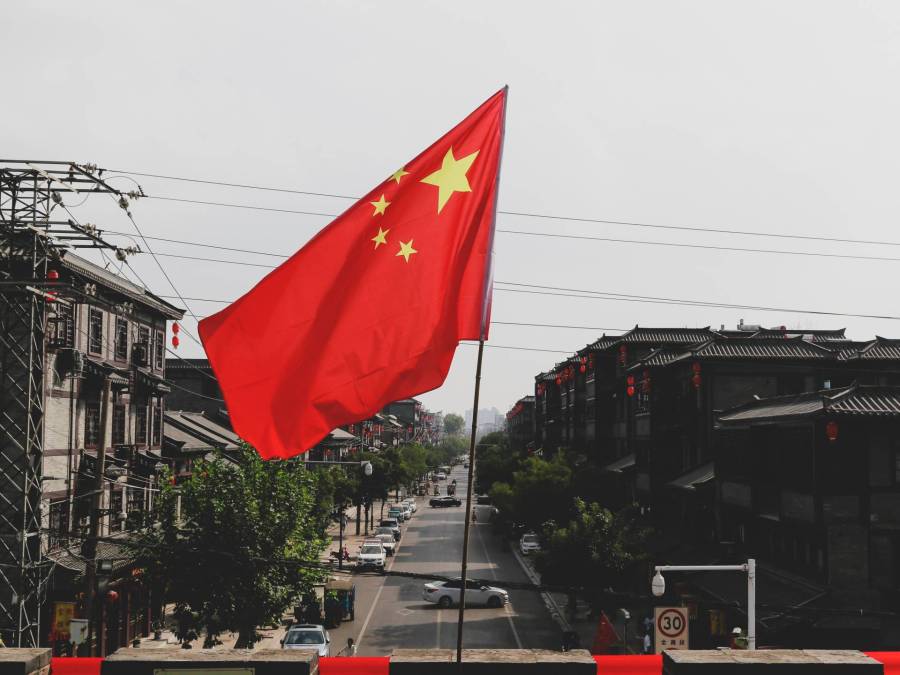According to a recent announcement, China will be imposing new regulations on the export of gallium and germanium, both of which are metals that are utilized in the production of computer chips and solar cells and are therefore vitally important. This action is seen as an escalation of the trade dispute that the United States and China are currently engaged in, and the trade dispute has been going on for a long time. The restrictions will begin to take effect on August 1, and the Chinese Ministry of Commerce has stated that their purpose is to “safeguard national security.” Despite this, the specifics of these limitations have not yet been made available to the public at this time.
The Chinese government has decided to restrict the amount of gallium and germanium that can be exported from the country as a direct response to the restrictions imposed by the United States on China’s access to advanced processor chips and other technologies. These restrictions were imposed by the United States on China. The United States government has stated that these restrictions are necessary because they are concerned about the country’s national security. On the other hand, China has proceeded with caution in its retaliation, possibly to avoid impeding the rapid growth of its domestic technology industry, which has occurred throughout the past few years.
It is significant to point out that China decided to impose restrictions on its exports at precisely the same time that Treasury Secretary Janet Yellen is scheduled to travel to Beijing. This is a timely and important development. This visit is a part of the ongoing efforts being made by the administration of Vice President Joe Biden to improve relations between the United States and South Africa, which have become strained in recent times.
The relationship between the United States and China has significantly deteriorated over the past few years for a variety of reasons, including disagreements regarding technology, China’s expansion of its military, concerns regarding human rights, and other contentious matters. These and other contentious issues have contributed to the decline in the relationship.
Two elements, gallium and germanium, are required for the production of computer chips, which are found in mobile phones, cars, and a wide variety of other consumer products. Gallium and germanium are required in essential amounts. These metals are required for the production of photovoltaic panels as well as technological equipment for the armed forces.
The United States’ reliance on China for its supply of gallium and germanium accounts for approximately half of China’s total supply of these metals. China is the primary source of gallium and germanium in the world. The United States Geological Survey has provided estimates indicating that China exported approximately 23 metric tons of gallium and produces approximately 600 metric tons of germanium each year.
China’s efforts to advance its technological capabilities face a significant obstacle in the form of the restrictions imposed by the United States on Chinese access to advanced chips and the technology used in chip manufacturing. These restrictions were imposed on China by the United States. The Communist Party of China, which is currently in power in China, has been exerting a lot of effort to increase the country’s economic prosperity and global influence.
This has been accomplished by establishing China as a frontrunner in a variety of high-tech industries, such as artificial intelligence, telecommunications, and clean energy, amongst other areas. On the other hand, the restrictions that have been imposed by the United States and its allies, which include the Netherlands and Japan, have the potential to impede China’s progress in the aforementioned areas. These allies include the Netherlands and Japan.
Memory chip production in the United States is dominated by Micron Inc., a company based in California. In May, the Chinese capital of Beijing issued a regulation that prohibits the use of products manufactured by Micron Inc. in computers and network equipment that are regarded as being sensitive.
This action was interpreted as a direct response to the restrictions imposed by the United States on China’s access to cutting-edge technology. These restrictions had been imposed by the United States. Concerns have been raised regarding the potential impact that escalating trade tensions between the two countries could have on global supply chains as well as the overall stability of the technology industry. These tensions stem from a dispute over trade between the two countries.
A significant new development has arisen in the ongoing trade dispute between China and the United States as a result of the decision made by China to restrict the export of gallium and germanium to the United States. A significant amount of leverage is afforded to China as a result of the fact that it is in control of the supply of the aforementioned metals. These metals are necessary components in a wide range of different high-tech industries around the world.
The restrictions that have been imposed by China, in conjunction with the restrictions that have been imposed by the United States on Chinese access to advanced technology, have the potential to cause disruptions in global supply chains and to have an effect on the technological goals of both countries. Moreover, the United States has imposed restrictions on Chinese access to advanced technology.
The visit of Treasury Secretary Janet Yellen to Beijing opens a window of opportunity for the United States and China to engage in fruitful conversation and make progress toward resolving the issues that separate them from one another. This is important both to preserve economic equilibrium around the world and for the advancement of scientific research.
First reported on ABC News










